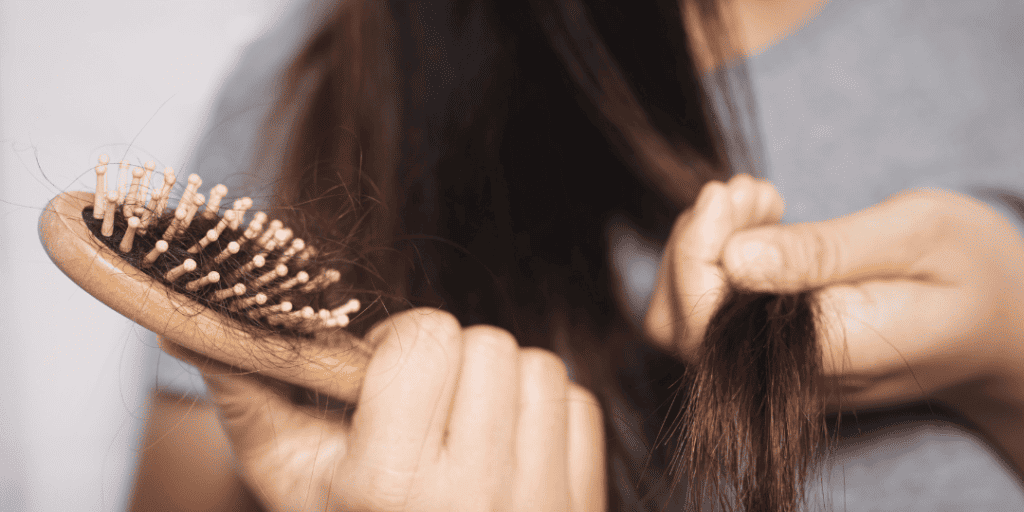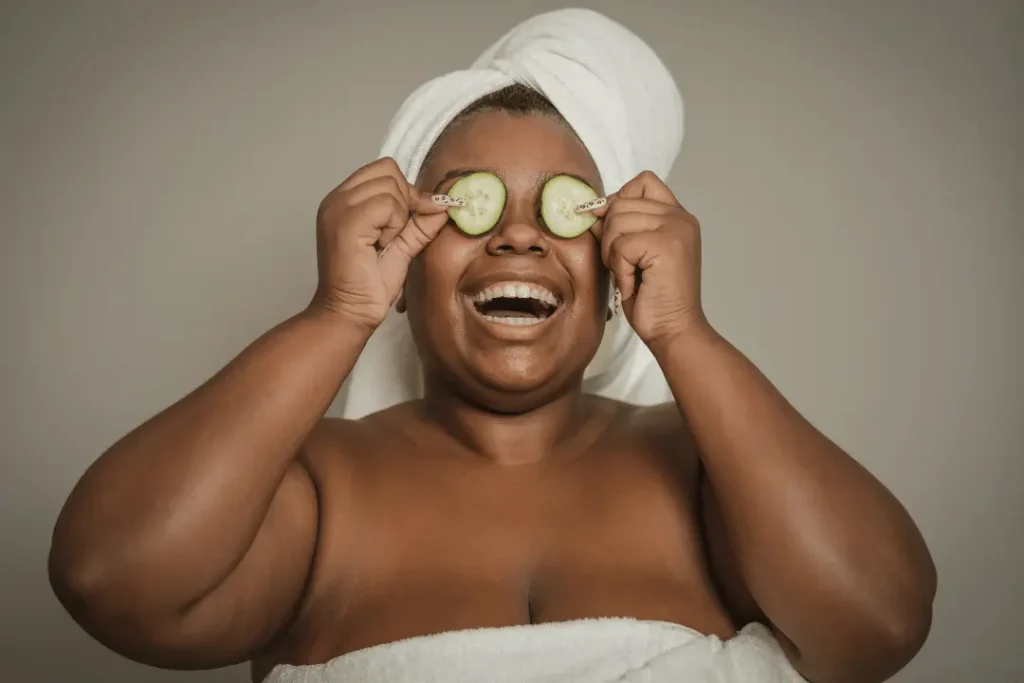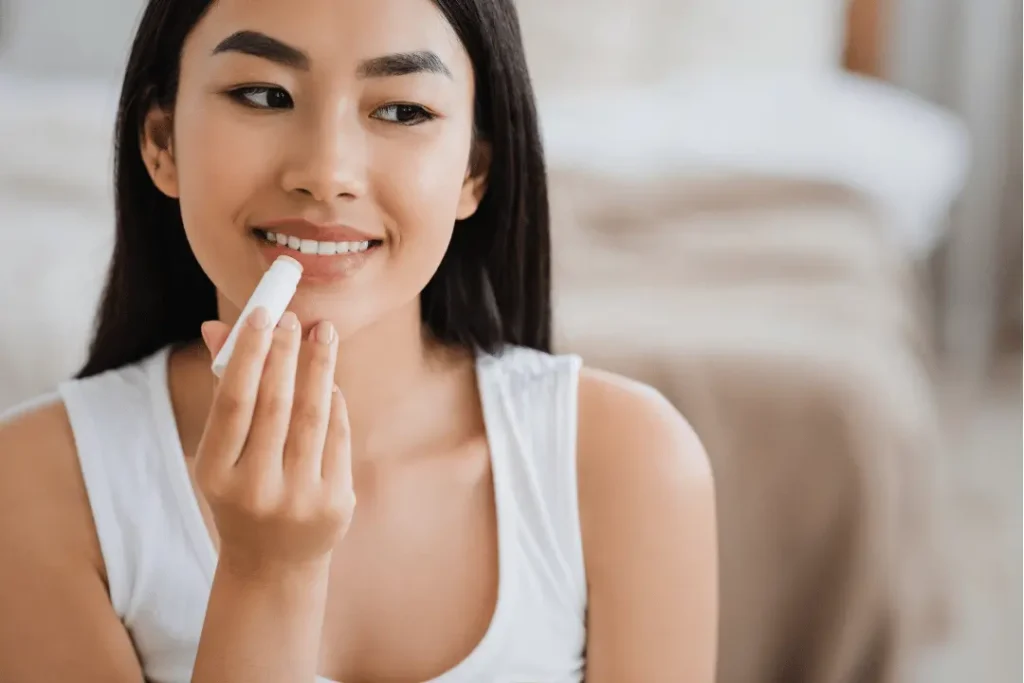Did you know that the health of your hair is a reflection of your overall wellbeing? It tells a story about your lifestyle, diet, environment, and even your genetics.
Today, I’m going to share a comprehensive list of hair care tips that suit different lifestyles and preferences. Whether you’re a busy professional, a fitness enthusiast, or a hair care newbie, there’s something for everyone.
#1: Selecting the Perfect Shampoo and Conditioner for Your Hair Type
Let’s delve into the realm of shampoo and conditioner – the superheroes of hair care. But wait! It’s not about picking any random set off the shelf. The trick is to customize your selection according to your hair type[1]. Not sure how to do that? No worries, we’ll decode this hair puzzle together.
Identifying Your Hair Type: A Simple Guide
Before we explore how to pick the right shampoo and conditioner, we need to determine your hair type. From oily and dry to normal, curly, straight, or a mix of these, hair types are varied.
Here’s an easy test to help you identify yours: Wash your hair, air dry it without using any products, and then inspect. If it looks oily within a day of washing, you have oily hair. Does it feel parched and frizzy? That’s classic dry hair. Normal hair strikes a balance between the two, while curly and straight hair have unique traits.
Choosing Your Shampoo and Conditioner: A Quick Tour of the Aisle
Now that we’ve deciphered your hair type, it’s time to find the perfect shampoo and conditioner to complement it. Let’s stroll down the product aisle:
- Oily Hair: Opt for shampoos labeled as ‘clarifying’ or ‘balancing,’ like those containing tea tree oil or citrus extracts. These ingredients can regulate sebum production without stripping away natural oils.
- Dry Hair: Look for hydrating and moisturizing products. Ingredients like shea butter or argan oil can replenish your hair’s much-needed moisture.
- Normal Hair: Lucky you! Most products will suit you, but a gentle, balancing shampoo and conditioner will never fail.
- Curly Hair: Hydration is crucial. Creamy, moisturizing products can help tame frizz and enhance your curls.
- Straight Hair: Opt for lightweight shampoos and conditioners that won’t weigh your hair down.
Washing and Conditioning 101: The Right Way
With your shampoo and conditioner selections ready, let’s nail down your hair washing and conditioning routine.
Regardless of your hair type, washing too frequently can strip your hair of its natural oils, leading to dryness and damage. Most experts recommend washing your hair 2-3 times a week. When you do, apply shampoo primarily to the scalp (where oil production is highest) and conditioner to the lengths and ends of your hair, steering clear of the scalp.
Take your time to massage the shampoo into your scalp and evenly distribute the conditioner through your hair. Your hair will definitely show its gratitude!
#2: Natural Remedies for Hair Growth and Thickness
Everyone desires thick, luxurious hair, but reality often paints a different picture with issues like hair loss and thinning. Here’s my silver lining: you don’t have to splurge on costly treatments or risk harmful products. One of my tried-and-true hair care secrets lies in the power of nature. Natural remedies can do wonders for your hair growth and thickness.
Understanding Hair Loss and Thinning: The Root of the Problem
It’s vital to comprehend the root causes of hair loss and thinning. Factors such as stress, aging, and hormonal imbalances can trigger these issues. As per the American Academy of Dermatology, a staggering 80 million U.S. men and women grapple with hair loss[2]. It’s not just a cosmetic issue; it can profoundly impact one’s self-esteem.
Harnessing the Power of Natural Remedies for Hair Growth and Thickness
Now let’s unravel the magic: how can natural remedies enhance your hair growth and thickness? Be it essential oils like rosemary and lavender, herbs like ginseng, or power-packed vitamins like biotin—nature’s pharmacy is brimming with options.
Each of these natural remedies works its wonders in unique ways. For instance, rosemary oil boosts cellular metabolism, stimulating hair growth.
Navigating Natural Remedies: The Do’s and Don’ts
While natural remedies can be a boon for your hair, ensure their safe and effective use. Each remedy comes with a recommended dosage and application method for optimal results. Be mindful of potential side effects and always conduct a patch test before introducing anything new to your scalp.
Remember, even if you long for Rapunzel-like hair, overuse or misuse of these remedies could backfire. Always consult a healthcare professional before experimenting with new treatments, even natural ones.
In essence, natural remedies can revolutionize your hair care routine, providing a safe, affordable, and effective solution to boost hair growth and thickness. Remember it’s a journey, not a sprint.
#3: Guard Your Hair Against Heat, Sun, and Pollution
Your hair needs as much care as your skin, if not more. But how does one protect their tresses from the elements? Let’s dive in.
The Impact on Your Hair
Unfortunately, your favorite sunny beach days and blow-dry routines come at a cost for your hair. Constant exposure to heat, sun, and pollution can lead to various forms of hair damage, including dryness, frizz, and color fading. This is manifested as split ends, breakage, and a dull look that none of us are keen on.
It’s essential to remember that hair health is an indicator of your overall health. Therefore, protecting your hair also means taking care of your wellbeing.
Shielding Your Hair
Start with a quality heat protectant spray. If you’re an ardent user of heat styling, this is an absolute must. It creates a protective layer on your hair, reducing damage and preserving its shine.
Also, start loving hats and scarves. They are not only fashionable but also act as a physical barrier against the harsh sun and pollution. If you can find a hat with UV protection, even better!
Hair Care Tips : Preventing and Repairing Damage
As far as possible, avoid heat styling. Embrace your natural hair texture and reserve the hot tools for special occasions. Your hair will be eternally thankful!
Deep conditioning treatments can be a game-changer. They nourish and repair your hair, restoring that healthy shine that we all desire.
If you’re grappling with split ends, a regular trim can do wonders. It’s better to lose a little length than allowing those split ends to creep up your hair shaft.
#4: The Art of Hair Styling: Balancing Creativity and Care
Hair styling is more than a mundane routine. It’s a canvas for self-expression, a way to break free from dull hair days, and a delicate dance between achieving your desired look and maintaining the health of your hair and scalp.
Discover New Looks: From Braids to Buns and More
Each day is a fresh chance to experiment with your hair. Braids offer a laid-back yet stylish look, perfect for a casual outing. For a more professional touch, buns exude sophistication, making them the ideal choice for those critical Zoom meetings. When you’re in the mood for glamour, cascading curls add a touch of romance.
But remember, the style isn’t just about the look; it’s also about the tools and accessories you choose. Hair clips, bands, pins, and even curling irons can help you craft a multitude of looks. But while creativity is encouraged, don’t forget to practice caution.
The Dos and Don’ts of Hair Styling
Dos
Choose gentle hair products that suit your hair type and condition.
Let your creativity shine and experiment with different styles.
Consult a professional stylist if you’re considering a major change.
Don’ts
Subject your hair to excessive heat, harsh chemicals, or tight hairstyles.
Style your hair when it’s wet or dirty.
Remember, your hair is as unique as you are. Not all products will work the same for everyone. The key is to listen to your hair, treat it with care, and seek professional advice when unsure.
#5 – Hair Health: More Than Just Products
Your hair serves as a mirror, reflecting your overall health and diet. So, it’s not only about the hair products you use but also what you consume. Foods and drinks significantly affect the health and appearance of your hair.
Protein and Nutrients: The Building Blocks for Luscious Locks
Our hair predominantly consists of protein, and it requires a cocktail of nutrients to grow and maintain its strength. These essential nutrients include iron, zinc, biotin, and vitamins A, C, D, and E. Iron ensures oxygen reaches your hair follicles, while zinc prevents hair loss and damage. Biotin plays a crucial role in producing keratin, the protein that constitutes our hair. The vitamins each play exclusive roles in promoting hair growth and health.
Balanced Diet: The Secret to Healthy Hair
How can we make sure our hair gets these nutrients? The answer lies in a balanced diet. For protein and biotin, opt for eggs; for healthy fats and minerals, go for nuts; for antioxidants and vitamin C, go for berries; for omega-3 fatty acids and vitamin D, choose salmon; and for iron, folate, and vitamin A, spinach is your best bet.
Stay Hydrated
Hydration is just as important. Water is vital for keeping your hair and scalp hydrated, preventing dryness and brittleness. Aim for the recommended daily water intake of 8 glasses a day.
Your Hair Care Routine
While a healthy diet nurtures your hair from within, you must complement it with an appropriate hair care routine that caters to your specific hair type and condition. Just like skincare, your hair needs its own regimen.[4]
Balance and Moderation: The Key to Nutrient Intake
Remember, though, that anything in excess can be harmful. While these nutrient-rich foods are essential, be mindful of the recommended daily intake and portion sizes. For instance, adults are advised to consume 0.8 grams of protein per kilogram of body weight daily.
Overconsumption can stress out your kidneys and liver, while underconsumption may lead to hair thinning and loss. If you’re unsure about your nutrient intake, always consult a doctor or a nutritionist. They can provide guidance based on your personal health and dietary needs.
Tip #6: Rethink Before Reaching for Chemical Hair Treatments and Dyes
We’ve all been in that hair care aisle, mesmerized by the promise of a dramatic hair transformation. But before you succumb to the allure of a box of color or a bottle of chemical straightener, let’s delve into the potential harm these ‘magic potions’ could do to your precious tresses.
Unmasking the Harsh Reality of Hair Chemicals
Hair chemical treatments and dyes are akin to a beautifully wrapped present that hides a disappointing gift. Yes, they do deliver drastic changes in hair color and texture, but beneath this attractive exterior lie some unsettling facts. Scientific research uncovers how these products can lead to severe hair damage, dryness, breakage, and even trigger allergic reactions.[3]
But the story doesn’t end there. Over time, these treatments can rob your hair of its natural vitality, transforming it into a dull and brittle shadow of its former self. In more severe scenarios, they can instigate scalp irritation and even induce hair loss.
Discover the Power of Nature’s Beauty Aids
Now let’s turn our attention towards nature’s beauty aids. They may not offer the same dramatic results, but they are gentler on your hair and kinder to our planet.
- Henna: A natural dye that imparts a stunning reddish-brown hue to your hair while conditioning it.
- Lemon Juice: A natural lightener that also adds a glistening sheen to your hair.
- Chamomile Tea: A natural enhancer for blondes that also provides scalp relief.
- Coffee: Surprisingly, a strong brew can darken your hair and stimulate hair growth.
Weighing the Pros, Cons, and Precautions
Pros
Budget-friendly
Gentler than hair chemicals
Eco-conscious
Cons
Less potent
Offer inconsistent results
Require a bit more of your time
Prior to embarking on your natural hair journey, always conduct a patch test to avoid any adverse reactions. Follow the instructions religiously, and always nourish your hair post-treatment.
Tip #7: Embrace Scalp Care for Healthier Hair
Did you know that the condition of your scalp directly impacts how your hair grows? Indeed, maintaining a healthy scalp can ward off many issues affecting hair quality and growth.
Your Scalp: The Bedrock of Hair Health
Think of your scalp as the fertile soil in a garden. A well-nourished, cared-for garden yields robust vegetation, similarly, a clean and healthy scalp encourages superior hair growth. It facilitates better blood circulation, regulates oil production, and optimizes hair follicle function.
Scalp Care Must-Haves
Scalp Massage: A scalp brush can be an invaluable ally. Massaging your scalp boosts blood circulation and encourages hair growth. Plus, it feels heavenly!
Exfoliation: Employing an exfoliating scrub can assist in removing dead skin cells and product buildup. Say adieu to that sticky sensation!
Anti-dandruff Shampoo: If you’re grappling with flakes and itchiness, an anti-dandruff shampoo can keep these pests in check.
Scalp Serum: Quench and soothe your scalp with a high-quality scalp serum.
Remember, though, moderation is crucial. Overdoing or neglecting your hair hygiene can both yield negative outcomes.
Tailoring Your Hair Hygiene Regimen
Developing a hair hygiene regimen that aligns with your hair type, condition, and lifestyle is paramount. Also, keep in mind: frequency and duration are key. Most experts suggest washing your hair two to three times a week.
Overwashing can rob your hair of its natural oils, leading to dryness and breakage. When you do wash, indulge your scalp with a good five-minute massage and rinse thoroughly with lukewarm water.
Be Alert for Common Scalp Problems
Finally, remain vigilant for symptoms of common scalp issues, including seborrheic dermatitis (redness, scaling, and itching), psoriasis (thick, silvery scales and dryness), and folliculitis (inflammation and infection of the hair follicles).
The Bottom Line
To sum it all up, maintaining healthy hair goes far beyond just choosing the right shampoo and conditioner. It’s about:
- Identifying your hair type and choosing the right products accordingly.
- Using natural remedies to boost hair growth and thickness.
- Protecting your hair from heat, sun, and pollution.
- Styling your hair with care and creativity, while prioritizing hair health.
- Eating a balanced diet and staying hydrated for healthy hair growth.
- Avoiding harmful chemical treatments and opting for natural alternatives.
- Practicing good hair hygiene and scalp care to promote hair growth and prevent scalp issues.
These tips, grounded in scientific research and expert opinion, can help you achieve the healthy, shiny hair you’ve always dreamed of. But remember, it’s crucial to listen to your hair and adapt these tips to suit your specific needs and hair type.





